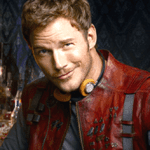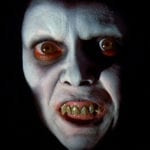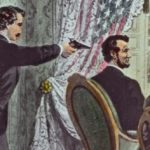 Politics
Politics  Politics
Politics  Weird Stuff
Weird Stuff 10 Freaky Times When Famous Body Parts Were Stolen
 Miscellaneous
Miscellaneous 10 Interesting Things Manufacturers Stopped Making and Why
 Gaming
Gaming 10 Funny Tutorials in Games
 History
History 10 Fascinating Little-Known Events in Mexican History
 Facts
Facts 10 Things You May Not Know about the Statue of Liberty
 Movies and TV
Movies and TV 10 Movie Adaptions That Brought Popular Songs to Life
 Health
Health 10 Miraculous Advances Toward Curing Incurable Diseases
 Miscellaneous
Miscellaneous 10 Undeniable Signs That People’s Views of Mushrooms Are Changing
 Animals
Animals 10 Strange Attempts to Smuggle Animals
 Politics
Politics 10 Countries Where Religion and Politics Are Inseparable
 Weird Stuff
Weird Stuff 10 Freaky Times When Famous Body Parts Were Stolen
 Miscellaneous
Miscellaneous 10 Interesting Things Manufacturers Stopped Making and Why
Who's Behind Listverse?

Jamie Frater
Head Editor
Jamie founded Listverse due to an insatiable desire to share fascinating, obscure, and bizarre facts. He has been a guest speaker on numerous national radio and television stations and is a five time published author.
More About Us Gaming
Gaming 10 Funny Tutorials in Games
 History
History 10 Fascinating Little-Known Events in Mexican History
 Facts
Facts 10 Things You May Not Know about the Statue of Liberty
 Movies and TV
Movies and TV 10 Movie Adaptions That Brought Popular Songs to Life
 Health
Health 10 Miraculous Advances Toward Curing Incurable Diseases
 Miscellaneous
Miscellaneous 10 Undeniable Signs That People’s Views of Mushrooms Are Changing
 Animals
Animals 10 Strange Attempts to Smuggle Animals
Ten Actors Who Didn’t Get to Use Their Own Voice
Every actor has a first film or breakout role that launches their career. Some, like Al Pacino, spend years trying to top an iconic part like Michael Corleone in The Godfather. Or others like Paul Newman take out an advertisement in a Hollywood trade to apologize for a bad performance such as his in The Silver Chalice.
But perhaps even more humiliating is having your voice dubbed by another actor when you finally get your big break. Here are ten times a future star appeared in a film only to have someone else deliver their lines.
Related: 10 Shocking Weight Transformations By Actors For Films
10 Andie MacDowell
Andie MacDowell was perhaps at the height of her youthful beauty in 1984 when she was best known as a cover girl for Vogue magazine and a model for Calvin Klein commercials. That same year she made her acting debut in Hugh Hudson’s Greystoke: The Legend of Tarzan, Lord of the Apes. Cast as Jane Porter, the love interest of the famed “Ape Man,” MacDowell was not only striking in the role, wearing an array of Edwardian costumes but also impressed with her aristocratic voice and diction.
The only problem was, it wasn’t her voice.
Hudson, who didn’t care for the South Carolina native’s Southern accent, had the award-winning stage and screen actress Glenn Close dub her lines—who had expressed interest in the role herself. Although embarrassing to MacDowell at the time, it didn’t slow down her film career. She would later achieve stardom and acclaim for movies such as Sex, Lies and Videotape, Four Weddings and a Funeral, and Groundhog Day.[1]
9 Arnold Schwarzenegger
As hard as it is to believe, one of Hollywood’s biggest stars and one of the most famous governors in U.S. history initially found it difficult to secure work in the movie industry, despite winning Mr. Olympia seven times as a world-class bodybuilder. In his 1970 film debut Hercules in New York, due to his thick Austrian accent and the perceived inability of people to pronounce his name, Schwarzenegger was cast using the stage name “Arnold Strong.” And of course, his voice would be dubbed, not by an acclaimed thespian of the stage and screen but rather by an uncredited voice actor.
The results were campy at best and laughably bad at worst. It would take another twelve years before Schwarzenegger would be cast in his breakout role in Conan the Barbarian. In the next two decades, he became one of the most bankable action superstars in the world. And in 2003, he would defy political odds by winning the California recall election and being sworn in as the state’s 38th governor. It’s proof positive that sometimes you do “get a second chance to make a first impression.”[2]
8 Sam Jones
Not an actor to be confused with the likes of Spencer Tracy and Sir John Gielgud, Sam J. Jones does have one significant accomplishment in his film career. He managed to beat out future box-office stars Kurt Russell and Arnold Schwarzenegger for perhaps his most famous role in a career that has lasted almost four decades. Flash Gordon, now considered a cult classic, was produced by the legendary Dino de Laurentiis and initially held promise to be the next popular science fiction film franchise. Despite modest box office returns, Flash Gordon had a memorable soundtrack by the rock band Queen, and there was interest in producing a sequel in the early 1980s.
But unfortunately, Jones, a former Playgirl centerfold, butted heads with de Laurentiis during filming and ultimately decided to quit the movie before post-production. The result was not only would there never be a Flash Gordon sequel, but Jones’s dialogue had to be dubbed by professional voice and dramatic actor Peter Marinker. This would not bode well for Jones’s future as a budding film star. However, it hasn’t hurt the movie’s long-term appeal to legions of contemporary sci-fi fans.[3]
7 Anita Ekberg
Swedish blonde bombshell and pinup girl Anita Ekberg arrived in Hollywood almost a decade before being cast as Sylvia in her career-defining performance in Federico Fellini’s La Dolce Vita in 1960. Her participation in 1951’s Miss Universe pageant brought Ekberg to America. Although she didn’t capture the crown, she did attract the attention of Universal Studios, who signed her to a contract. She was later scooped up by Paramount Pictures and appeared in numerous movies in largely decorative, non-speaking roles due to her beauty, voluptuous figure, and inability to master the English language.
Nonetheless, this didn’t stop legendary director King Vidor from casting her in the plumb role of Princess Hélène in his epic adaptation of Tolstoy’s historic novel War and Peace. As “eye candy” for male audiences, it was a shrewd casting call but a nightmare for dialogue coaches who worked with Ekberg. She and her castmate, fellow Swedish actress May Britt, would have all their lines redubbed in post-production. Nonetheless, it proved to be a breakout role for Ekberg, who was later publicized as “Paramount’s Marilyn Monroe.”[4]
6 Debbie Reynolds
Debbie Reynolds’s debut in Singin’ in the Rain is one of the greatest by any young performer in arguably the greatest film musical of all time. Likewise, her role as Kathy Selden is an excellent addition to this list because her character in the movie must dub the dialogue and singing of one of the most obnoxious, abrasive, and ditziest blondes ever depicted on the silver screen—impeccably played by actress Jean Hagen.
However, the irony in the actual production of the film is that Reynolds had to be dubbed not once but twice for both her singing and dialogue. In one of the more famous sequences in the movie, Reynolds is depicted dubbing the singing of “Would You?” for Hagen’s character Lina Lamont. However, due to Reynolds’s thin and youthful vocal style, singer Betty Noyes, famed for her performance of “Baby Mine” in Dumbo, was called in to sing it for her.
Even more ironic is the delivery of the line, “Our love will last ’til the stars turn cold.” Because of her deeper, richer vocal delivery, Hagen dubbed Reynolds, who, in turn, was dubbing Hagen’s “singing” in the movie. Crazy as it sounds, the results are one of the most perfect musical productions ever made in the Golden Era of Hollywood.[5]
5 David Niven
Sophisticated English actor David Niven enjoyed a film career that spanned over a half-century and included performances in such critically acclaimed movies as The Pink Panther, Around the World in 80 Days, and the holiday classic The Bishop’s Wife. In 1959, Niven was awarded the Academy Award for Best Actor for his role in Separate Tables. If anything, his aristocratic demeanor and voice were assets in his prolific acting career. However, in 1981 Niven was diagnosed with Lou Gehrig’s disease (ALS), which had a debilitating effect on his acting career.
Despite a shaky appearance on The Merv Griffin Show later that year, he agreed to one final screen appearance in Blake Edward’s 1983 Pink Panther sequel Curse of the Pink Panther. Physically unable to audibly deliver his lines, impressionist Rich Little was brought in to dub the actor’s dialogue. Sadly, Niven would not learn of this until he read about it later in a newspaper report. Despite this ignominious end to an otherwise superlative acting career, Niven has remained highly respected as an actor and British patriot who served his country with distinction in World War II.[6]
4 Peter O’Toole
When one thinks of Peter O’Toole, some of the most epic and critically acclaimed films ever may come to mind, such as Lawrence of Arabia, Becket, and The Lion in Winter. A Shakespearean trained actor who first distinguished himself on the stage, O’Toole possessed one of the greatest voices in the history of cinema. Shockingly, after being cast in a supporting role in Nicholas Ray’s 1960 arctic adventure film, The Savage Innocents, O’Toole’s accent and delivery were deemed unsuitable for the part.
English voice actor Robert Rietti was hired to dub O’Toole’s lines to give his character a more Canadian-sounding voice. For fans of O’Toole, it seems insulting considering the actor would go on to be nominated for eight Academy Awards in his distinguished career. Perhaps even more shocking is that O’Toole never won a competitive Oscar. As a result of the decision to dub his voice, O’Toole requested his name be removed from the film’s opening and closing credits.[7]
3 Sir Laurence Olivier
Yes, Sir Laurence Olivier remains one of the greatest classically trained actors in stage and screen history. Both his performances and innovations as a director in adapting Shakespearean plays into motion pictures have influenced a multitude of modern actors and filmmakers, most notably Kenneth Branagh, who would portray Olivier in the 2012 movie My Week With Marilyn. With one of the most influential and recognizable stage and screen voices of all time, why would Olivier’s dialogue need to be dubbed?
Well, we’re cheating a tad on this one.
In the 1991 restoration of Stanley Kubrick’s 1960 historical epic Spartacus, deleted scenes were re-edited in a “Director’s Cut” of the classic film. In the controversial “snails and oysters” scene in which Olivier’s character Crassus attempts to seduce the slave Antoninus, the audio track was lost. As a result, the 66-year-old Tony Curtis, who played the part of Antoninus, redubbed his dialogue. However, Olivier died two years earlier, and thus, acclaimed actor Anthony Hopkins was enlisted to dub his lines. Hopkins’s impression of Olivier was flawless, and the scene was seamlessly re-edited into the film’s re-release.[8]
2 Gert Fröbe
Few James Bond villains can claim to be as memorable as gold magnate Auric Goldfinger—unless it was his Korean henchman Oddjob. To cast the title part in the third installment of the Bond film series, many acclaimed character actors were considered, including the legendary Orson Welles. Ultimately, producers turned to German film and stage actor Gert Fröbe, whose memorable performance certainly captured the gravitas the role demanded. In fact, arguably the most memorable line ever delivered by a Bond villain was his acid retort to the British Super Agent, “No, Mr. Bond, I expect you to die!”
The only problem is that British television actor Michael Collins, not Fröbe, delivered the line. The German actor’s inability to speak English fluently led to Collins dubbing most of Fröbe’s dialogue. Apparently, the decision to dub Fröbe’s lines in post-production worked. Goldfinger is generally regarded as the best of the Bond films, particularly those starring Sean Connery.[9]
1 Mel Gibson
From Australian tough guy to Hollywood pretty boy to acclaimed director, Mel Gibson has had one of the most diverse, celebrated, and controversial careers of any actor or filmmaker in Hollywood. But for the Academy Award-winning director and star of Braveheart, there probably wouldn’t have been a career had he not been first cast in the breakout title role of “Mad Max” Rockatansky in the blockbuster post-apocalyptic action film series. The first Mad Max movie was the most profitable film ever made after its release in 1979—up to that point. It shattered the record for the highest box-office-to-budget ratio of any previous movie.
However, even though it was cast with English-speaking Australian actors, the heavy use of Aussie slang confused U.S. audiences. As a result, the entire film was redubbed with the use of American voice actors. This was particularly ironic considering Gibson, who was born in the U.S. before his parents emigrated to Australia when he was twelve, easily mastered the American accent in his later Hollywood action films. Nonetheless, his debut in Mad Max provided a boon to his fledgling film career, which still continues over four decades later.[10]








